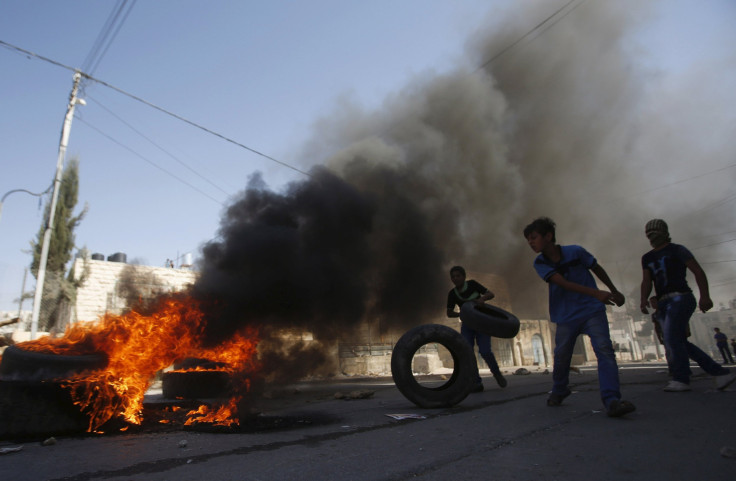Al-Aqsa Mosque Update: Israel Calls Up Hundreds Of Reservists As Unrest Spreads To Palestinian West Bank

Israel has called up hundreds of border police reservists amid one of the worst outbreaks of violence Jerusalem has seen in years, the Associated Press reported Friday. The move was meant to “help in returning order quickly” to the holy city, said Tzachi Hanegbi, chairman of the Knesset's foreign affairs and defense committee.
Much of the unrest centers on what is, to both Islam and Judaism, Jerusalem’s holiest site, the Al-Aqsa mosque compound. For Jews, it is the Temple Mount, where the biblical Israelite temples are believed to have stood. Several Arab neighborhoods in East Jerusalem have seen unrest, as well. Protests also spread beyond Jerusalem Friday, as dozens of Palestinians were reportedly injured in clashes with Israeli forces across the West Bank Friday, the Palestinian Ma'an News Agency reported.
Jerusalem, a city holy to Muslims, Christians and Jews, has long been a flashpoint for tensions, as Palestinians view visits by large groups of religious Jews to the compound as provocations. Protests have often been met by heightened Israeli security and restrictions on visits to the holy site, angering many Muslims.
Not just Jerusalem: Several protests in solidarity with al-Aqsa are being held in #Jordan, including Amman pic.twitter.com/6lGwZBXNuj
— Michael Horowitz (@michaelh992) September 18, 2015
Protest in #Ramallah to condemn Israeli attacks against al-Aqsa mosque.
#Palestine
#Jerusalem
#AlAqsaUnderAttack pic.twitter.com/FwUstAfgMo
— Palestine Social (@PalestineSocial) September 14, 2015
Days ago, on the eve of the Jewish holiday Rosh Hashanah, Palestinians barricaded themselves inside the mosque and threw rocks and firebombs at police, news outlets reported. Unrest has widened since then, as police have expanded their presence and closed much of Jerusalem’s Old City to journalists, the International Business Times UK edition reported. Israeli authorities have placed restrictions on Muslim visitors to the holy site.
Israeli authorities have taken seriously outbreaks of violence around the compound. It was a controversial visit by the late Israeli prime minister, Ariel Sharon, in 2000 that sparked the bloodiest Palestinian uprising -- the Second Intifada. Muslim authorities currently patrol the compound, and Jewish and other tourists have been allowed to visit only at specific times of the day, and have not been allowed to pray at the site.
Saudi Arabia's King Salman has reportedly called world leaders, including U.N. Secretary-General Ban Ki-moon and U.S. President Barack Obama, pushing for them to take necessary measures at the U.N. Security Council to quell unrest in the city, Saudi media reported according to the Associated Press. He told the leaders that "such aggression flagrantly violates the holiness of religions and gives a hand to fan extremism and violence in the entire world."
© Copyright IBTimes 2024. All rights reserved.






















